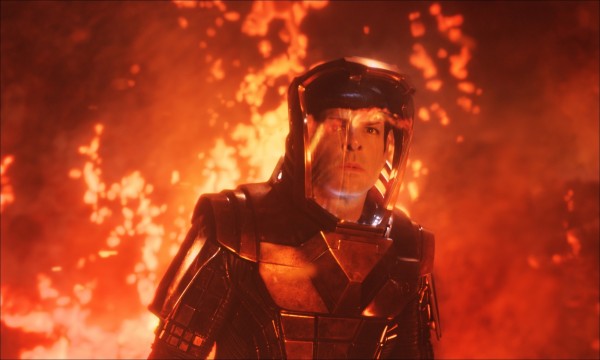Star Trek is more about space exploration, galactic politics and military conflicts, there are also moral choices that characters need to do in its TV series and feature films. “A Matter of Time” is an episode in Star Trek: The Next Generation. It is one of the best episodes that depict moral choices in Star Trek. A time travelling historian appears from the future. His name is Rasmussen and he wants to be present when USS Enterprise saves a dying planet inhabited by billions of innocent lives. However, a moral code forbids Rasmussen from revealing the outcome of this mission.
Geordi LaForge asks Captain Picard to stay on the planet during a critical moment. Picard stares are Rasmussen, wondering whether his approval will lead to the death of the skilled engineer and a close friend. Rasmussen smiles when Picard gives the permission reluctantly, giving an element of mystery to the episode. Eventually, Picard discusses with Rasmussen and the historian has a fairly good idea why Picard wants to talk to him. Picard clearly says that he is facing a dilemma, because the planet underneath the starship is turning to an ice ball. Many thousands will slowly die as the rapid climate change has an effect on the planet.
La Forge has a likely solution, but with a very critical margin of error. If the method isn’t successful, it is possible that everyone on the planet will eventually perish. This is a difficult choice, because billions could die if the method fails, but everyone will be saved if it is a success. This is a tough choice, because if the crew does nothing, thousands will slowly die. In the entertainment world, such a dilemma could also be implemented everywhere, such as choices in RPG when some characters will have to die if players want to accomplish a critical quest.
In the episode, Rasmussen asks why he is asked to see Picard. Quite intriguingly, Picard, who steadfastly uphold the Prime Directives says that he want to have an access to information that’s not previously available. At the time, only Rasmussen is able to see the outcomes of Picard’s decision.
Similar moral dilemma is used in various games titles, although some players “cheat” by reading online guides about the implications of each decision. These games are essentially good tests about player’s confidence and conviction. Picard is facing the same issue. He has Rasmussen as a potential “walkthrough”, but he is bound by a moral code as a time traveller. Rasmussen refuses to divulge critical information and Picard chooses to try La Forge’s methods. It succeeds and many lives are saved.
It turns out that Rasmussen is a real time traveller, but he is from the past and tries to steal to items from USS Enterprise that he can reverse engineer in the past. He is caught and left stranded in the future, facing the 24th century justice. The episode may teach us about conviction, if we are confident about specific things.



